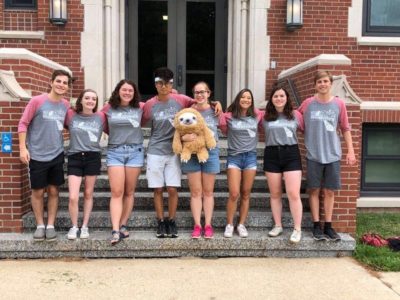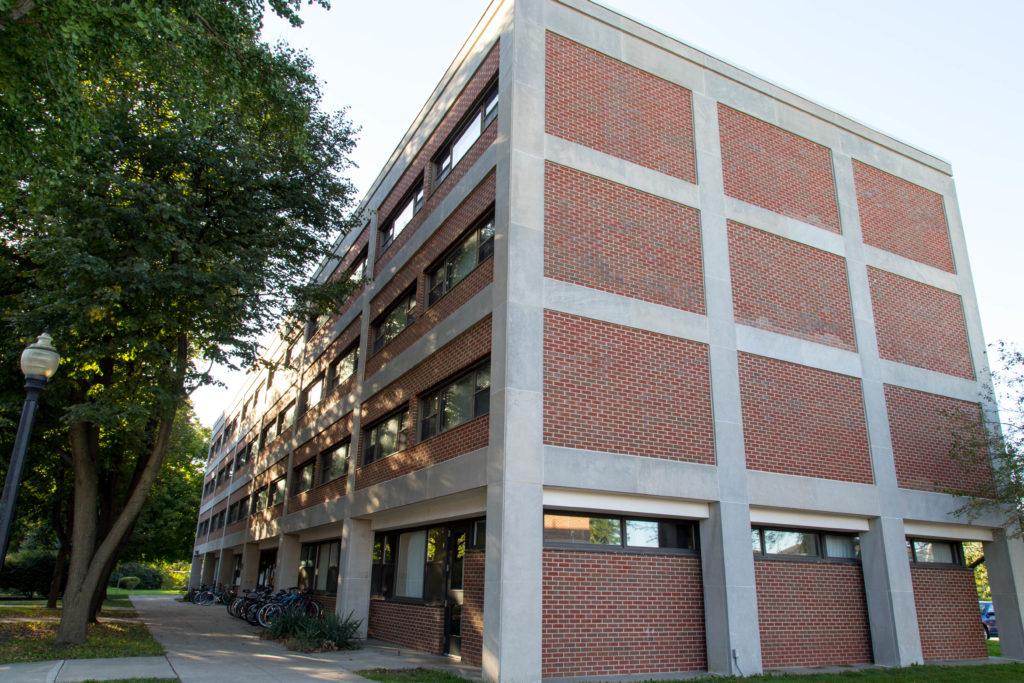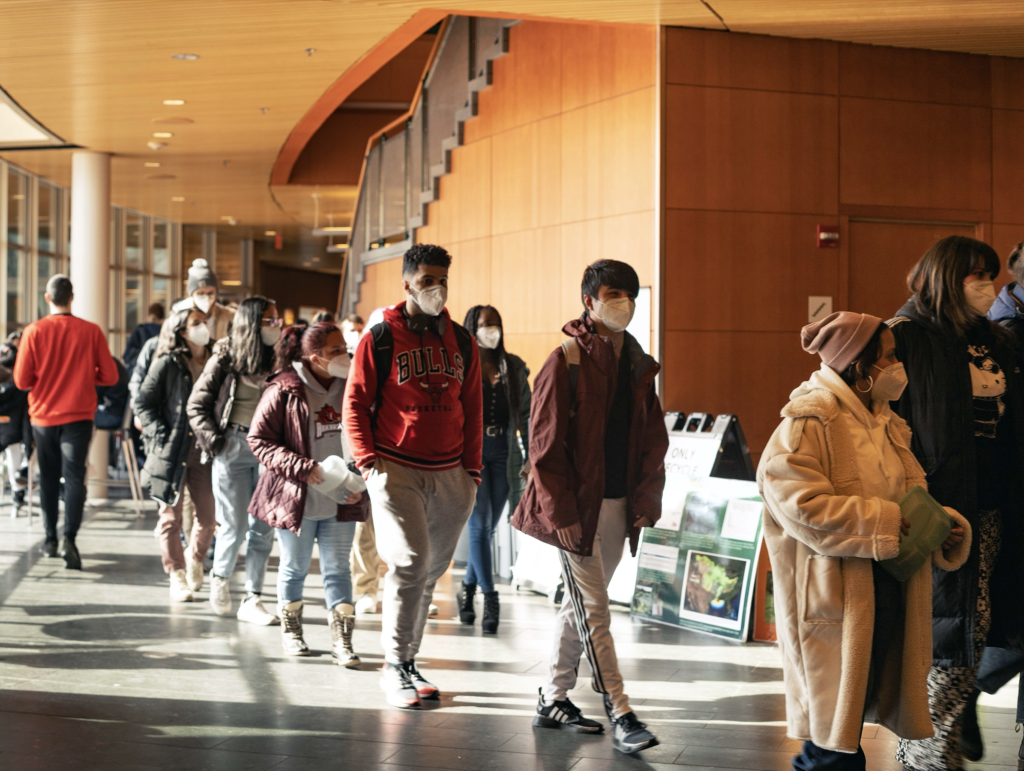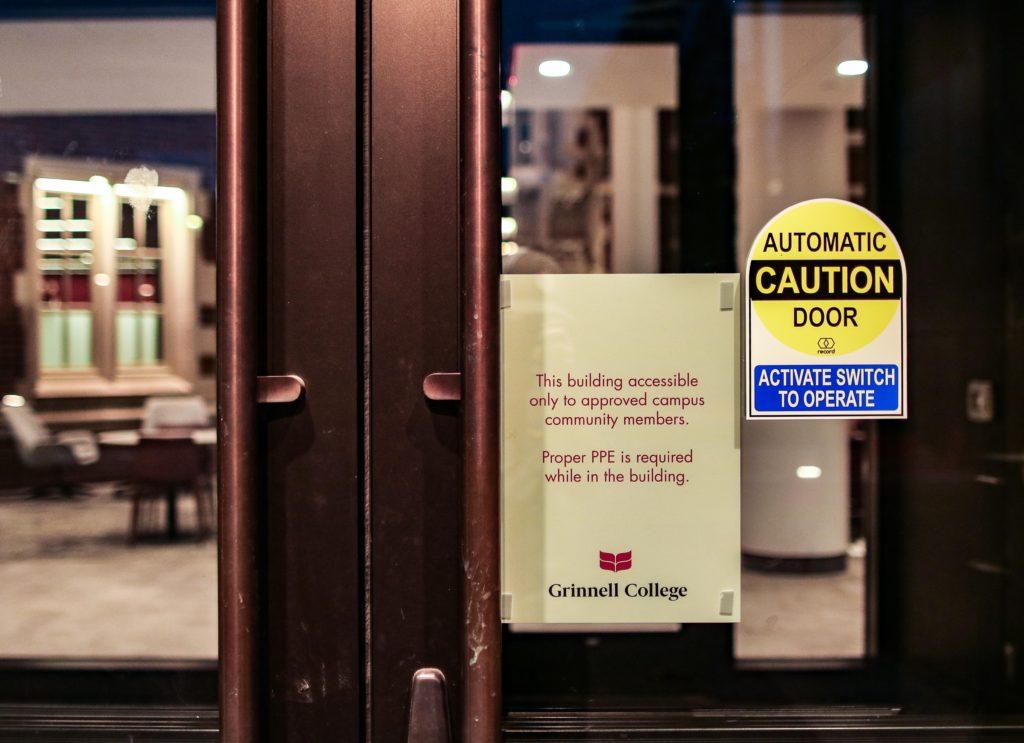“It’s six grand for the year, it’s a lot of money, and everyone is in a tough spot financially right now, so it is crucial money,” said Govind Sartaj ’21 on the recent loss of his job as a Community Advisor (CA). “It’s one big messy limbo we’re stuck in.”
On Friday, June 12, Sartaj and 54 other student staff members received an email from Director of Residence Life Dennis Perkins Jr. notifying them that Residence Life had eliminated the positions of CA and House Coordinator shortly after the College released its plan for Fall 2020. In the message, Perkins cited “the need to alter our standard operations in the coming year for the good of the community and our public health efforts” as the reasoning for the decision.
While the termination of student staff positions is a loss for all CAs and house coordinators, the announcement has been especially difficult for international students who were hired for these roles. Forced to comply with visa restrictions, strict College policies and travel bans, these students are scrambling to address the new uncertainties around income and housing created by the termination of their contracts.
“It was not an easy decision. It was not one we landed at lightly by any means,” said Dean of Students Ben Newhouse, who emphasized the need to maximize on-campus capacity for students with urgent housing needs. A limited number of students will still live in dorms on campus while project and language houses will now serve as quarantine and isolation spaces.
The CA contract for the 2020-21 school year lists more than a page of responsibilities included in the job, saying each CA “establishes and maintains a cohesive self-governing community” and “supports residents as they encounter academic and personal issues.”
They could have told us that this was a possibility or even just … suggested we apply to other jobs, but they didn’t do that at all. – Cristian Sales Garcia ’22
Residence Life student staff are compensated by a grant that covers the $6,548 cost of room expenses for the semesters they are employed. For many students, this is financially their best employment option, given that the grant far exceeds the compensation they would receive from campus jobs. CAs and house coordinators may work other jobs for no more than four hours a week.
The hiring process starts early in the spring semester, with job offers to CAs and house coordinators sent out in early March. Students were asked to sign contracts securing their position in early April – after the onset of the pandemic.
“It didn’t click for me that the possibility of eliminating this position was so real,” said Cristian Sales Garcia ’22, an international student from Brazil who was set to be a CA in the Smounker dorm cluster for a second year. “They could have told us that this was a possibility or even just … suggested we apply to other jobs, but they didn’t do that at all.”
The email from Perkins on June 12 told students that a virtual forum would be set up to discuss concerns the announcement has caused. A meeting has yet to be arranged.
Sales Garcia does not expect to return to campus any time soon due to the travel ban imposed by the US government on foreign nationals who have spent time in Brazil, where he is currently living. Although he will no longer be charged the room costs his CA position covered if he does not return to campus, he now has no option to work another remote campus job, as the Student Employment policy on the COVID-19 portion of the College’s website states that “students living outside the US are not eligible for remote work.” Director of International Student Affairs Karen Edwards clarified in an email to The S&B that this rule “is based on tax and labor compliance, not visa issues.

Other international students expecting to work for Residence Life have no choice but to stay in Grinnell due to restrictions on traveling back to their countries. Now, they need to pay on-campus room costs that they were expecting to be entirely covered by their job.
“Had I known there was any chance I wouldn’t get a free room, I would have [applied to live] off-campus, because it’s so much cheaper,” said Sartaj, who signed a contract to be a CA in East Campus and is now living off-campus in Grinnell. “I can’t even make up the money I was planning to get by working at Hy-Vee, because I’d get deported.”
Sartaj and other international students slated to work for Residence Life have appealed for permission to live off-campus, an application process that typically takes place in February.
Another consideration for students contracted to be CAs and house coordinators is the meal plan. Students who had been employed as house coordinators would have been able to opt out of the meal plan due to their residence in a project or language house, but they will now need to pay for the full meal plan required of all on-campus students.
“My health has been significantly better since I’ve been able to cook for myself,” said Anna Vasenina ‘21, an international student from Russia who was to repeat her role as house coordinator for Coding House the next year. Vasenina is currently living off-campus in Grinnell. “I had some dietary problems as a kid. … Just the two months I was on the D-Hall meal plan [in the spring of 2020,] my old problems started coming back, my stomach started hurting more. I know I won’t be able to be on that the whole year and be healthy, especially in such a stressful environment.”[lead]null[/lead]
I can’t even make up the money I was planning to get by working at Hy-Vee, because I’d get deported. – Govind Sartaj ’21
Since the initial off-campus application process that took place in February, no new requests to live off-campus have been approved by Residence Life.
“For the same public health reasons, we are not looking to grow the off-campus population. And so that’s why the answer has been no,” said Newhouse. He said he recognized the uniqueness of these students’ situation and said that the discussion regarding these policies is ongoing.
“Some students, they can’t go back home. There are probably 50 to 100 of us for whom living off-campus is the ideal option,” said Vasenina. “I’m an international student, I can’t go home, there are travel bans, I physically cannot. But also, I’m a senior, and so my argument is I didn’t apply for off-campus permission because I thought I would be in Coding House, which is classified as off-campus college-owned housing.”
Newhouse said that the denials are motivated by a prioritization of public health, which could be harmed by an influx of students moving to town to live off-campus. Regarding international students who are forced to stay in town, Newhouse cited the inability to influence off-campus students’ behavior as reasoning for the lack of new approvals.
“Do I think a student living off campus poses a greater health risk than a student living on campus? No,” said Newhouse. Instead, he said, more students than expected living off-campus would compromise the College’s low-density model: “We’re going to try to help as many students on campus as we can, and so if that’s paired with a marked increase off-campus we’ve really undermined the whole effort behind lower density.”
While they wait for answers, some CAs and house coordinators have consulted with the Union of Grinnell Student Dining Workers (UGSDW) for support in dealing with the recent news of their positions’ elimination. On Sunday, June 28, UGSDW held a meeting to discuss these students’ concerns and potential collective action steps.
“We immediately started discussing the very obvious labor issue,” said UGSDW President Jacob Schneyer ’21. “When they [CAs and house coordinators] sign those contracts, it’s a big commitment. … They make those big commitments and then the College completely pulls out of their end of the agreement and that clearly makes people very frustrated and angry.”







































































